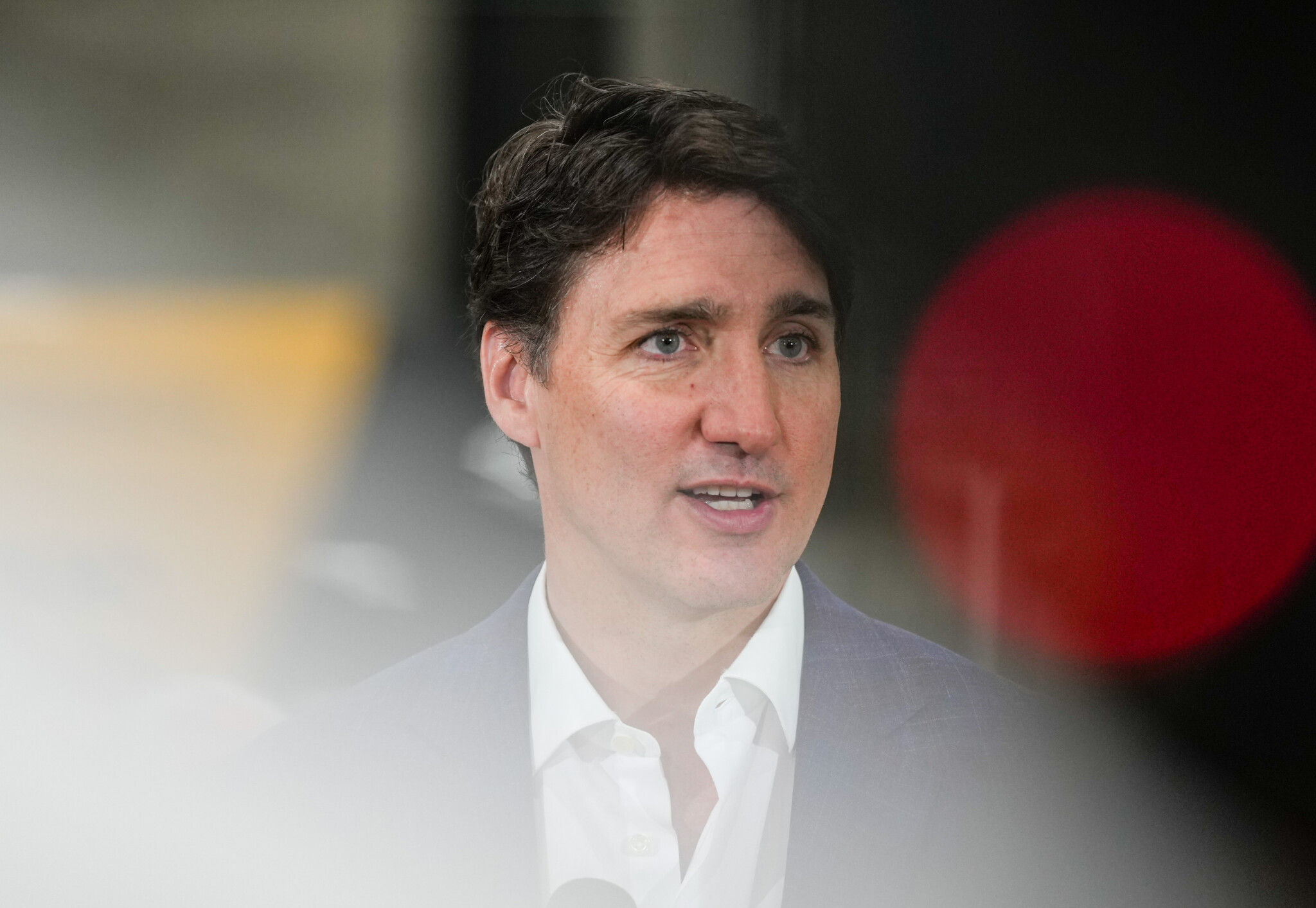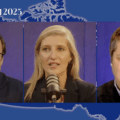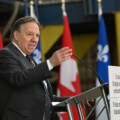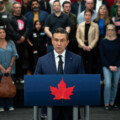The Liberals are in freefall. With this week’s Bloc Québécois victory in Montreal’s LaSalle—Émard—Verdun byelection, on top of the five-alarm byelection defeat in Toronto—St. Paul’s earlier this summer, Canada’s “natural governing party” returns to Parliament down two longtime urban strongholds.
The evidence, both from polls and reports of private inner-party conversations, is overwhelming that the problem is the prime minister himself. Yet, he refuses to leave and Liberal MPs have few mechanisms—particularly since they rejected the Reform Act at the beginning of this parliamentary session—to get rid of him.
What would be best for the Liberal caucus, and future of the party, is in direct opposition to the self-interest of their leader and his closest advisors. Yet, even if there was the potential for forced change, the still-resounding public silence of MPs and party heavyweights is cause for skepticism that common sense will trump a carefully fostered culture of cowardice and kowtowing.
Canadian politics has always revolved around inner power circles, but those circles are now microscopic dots. These days, political parties centralize not just authority but even the right to show signs of free thought in less than a handful of people––which may or may not meaningfully include a party’s on-paper leader.
Either way, a personality cult is then “cultivated” around the leader to inspire unquestioning devotion from supporters that can be wielded against so-called traitors.
The result is less a democratic system and more a series of superficial stage productions where everyone is expected to dutifully clap when the applause sign lights up, and sit on their hands as soon as it goes off.
There are no exceptions to the rule.
The lead actor flubs his or her lines? Applaud.
An entirely different show than the one you bought tickets for? Applaud anyway.
Fog machines set off the fire alarms? Ignore them. Keep applauding.
Real flames coming up the aisles? Don’t you dare leave your seats. Applaud.
Before you know it, the entire block burns to the ground because no one dared stop applauding long enough to call the fire department. But, hey, at least they’ll all be invited back for the next show.
The all-powerful PMO
Recent news that former Liberal cabinet minister Jane Philpott is considering a return to politics, followed by speculation that fellow former Liberal cabinet minister Jody Wilson-Raybould (JWR) could also return, highlights the consequences for anyone who dares call the fire department, even years later.
In 2019, a Globe and Mail story alleged senior PMO officials pressured JWR to save SNC-Lavalin from a criminal trial over corruption and fraud charges. She refused and was punished by being demoted to a lower-level cabinet position.
When Prime Minister Justin Trudeau claimed the story was false, JWR resigned from cabinet and submitted recorded proof of attempts to pressure her to interfere in SNC’s prosecution to the Commons justice committee. Shortly thereafter, in retaliation for telling the truth and backing it up with evidence, she was expelled from the Liberal caucus and stripped of her Liberal Party nomination.
Philpott also resigned from cabinet in protest over the matter. She was expelled from caucus on the same day as JWR.
Notably, ethics commissioner Mario Dion found Trudeau did contravene the federal Conflict of Interest Act and improperly pressured JWR to intervene in the case.

Independent candidate for Vancouver-Granville, Jody Wilson-Raybould, left, and independent candidate for Markham-Stouffville Jane Philpott, right, arrive to speak at the B.C. Assembly of First Nations annual general meeting at the Musqueam First Nation, in Vancouver on Thursday, Sept. 19, 2019. Darryl Dyck/The Canadian Press.
Not only did both women objectively stand up for what’s right and lawful, but had JWR’s initial concerns been heeded, the Liberals could have avoided a scandal that tarnishes them to this day. She was on the right side of both the rule of law and protecting her party.
Yet, in Stephen Maher’s recent biography of Trudeau, The Prince, he recounts the caucus meeting where JWR’s and Philpott’s expulsions were revealed: “One MP called Wilson-Raybould a cow. Another urged the pair to be banished to the worst seats in the backbench: ‘It’s time to send those two women up to the back row on the far side with the sex offenders.’”
The comparison to sex offenders is, of course, both entirely inappropriate and also appropriate in that it illustrates the severity of not just professional punishment, but social shunning, that follows any deviation from the agreed-upon applause routine.
Five years later, speculation that Philpott or JWR could run again, perhaps in an eventual Liberal leadership race, was met by swift online backlash from many Trudeau Liberal faithful. The gist of their scorn: both women betrayed the party, will always be traitors, and should remain permanently banished.
The entire saga exemplifies how authoritarian leadership styles and cults of personality work together to reinforce obedience and exact discipline.
While many are baffled by current Liberal MPs’ reluctance to so much as whisper against Trudeau, one only has to look at what happened to Philpott and JWR to see why. To do so would be to risk becoming the political equivalent of a sex offender.
A cross-party problem
However, this isn’t a one-party phenomenon. The same preference for near-absolute conformity and coordinated weaponization of personality cults is increasingly seen across Canada’s political spectrum. The number one prerequisite for a cabinet position, or even permission to talk to the press, these days isn’t any type of skill or experience, but degrees of loyalty.
The result is a political culture of fear and distrust, not just between political opponents, but within parties themselves. Your neighbour could very well be the one to turn you in for disloyalty, real or imagined, in a bid to reaffirm their own allegiance and boost their career. Internal paranoia, which also encourages blind and virulent partisanship to prove one’s unquestioning loyalty, is debilitatingly toxic.
It should be obvious this isn’t healthy for Canadian democracy, or political parties themselves.
The old adage is that politics, especially in a parliamentary system, is a team sport. Today, that phrase is most often used to justify demands for one-sided loyalty. But it’s not loyalty that makes sports teams great. It’s the ability of individual players to work together and complement each other in pursuit of a shared goal.
Those who seek absolute power and obedience are hollowing out their own teams as they chase away valuable players, disincentivize sportsmanship (or in non-sports terms, moral behaviour), and put short-term gains over long-term success.
The Liberals are now experiencing the consequences of surrendering their party to power hoarders who armed themselves with a weaponized cult of personality. The only way they can salvage—and other parties can secure—long-term health is to safeguard themselves from any more wholesale takeovers by those who prefer to spell “team” as “I.”








